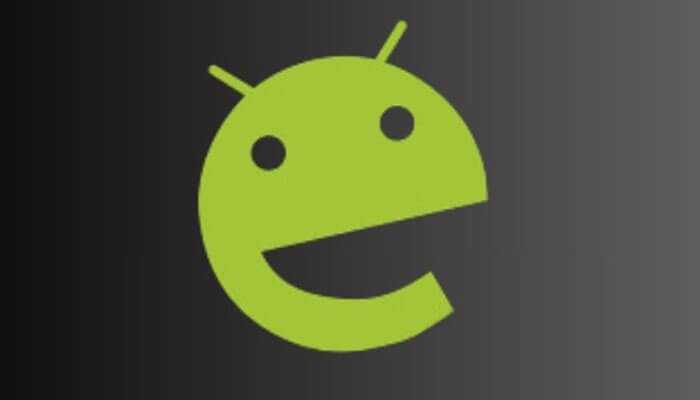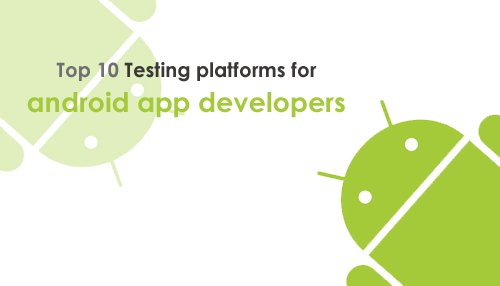We all know that the Google ecosystem has promoted Android mobile manufacturers to introduce new devices with different screen sizes, user interfaces, and processors, which indeed has become a nightmare for app developers to customize their apps in order to satisfy their users. To reduce their burden to some extent, there are different Android testing platforms or frameworks that possess unique features on their own.
1. Robotium
Robotium is an Android test automation framework that has full support for native and hybrid applications.
It makes it easy to write powerful and robust automatic black-box UI tests for Android applications. With the support of Robotium, test case developers can write function, system, and user acceptance test scenarios, spanning multiple Android activities.
2. Espresso
Espresso tests run optimally fast! It lets you leave your waits, syncs sleep, and polls behind while it manipulates and asserts on the application UI when it is at rest. The core API is small, predictable, and easy to learn, yet remains open for customization.
Espresso is targeted at developers who believe that automated testing is an integral part of the development lifecycle. While it can be used for black-box testing, Espresso’s full power is unlocked by those who are familiar with the codebase under test.
3. UI Automator
The UI Automator tool provides a convenient visual interface to inspect the layout hierarchy and view the properties of UI components that are visible in the foreground of the device. This information lets you create more fine-grained tests using UI Automator. For example, you can create a UI selector that matches a specific visible property.
4. MonkeyRunner
The Monkeyrunner tool provides an API for writing programs that control an Android device or emulator from outside of Android code. With Monkeyrunner, you can write a Python program that installs an Android application or test package, runs it, sends keystrokes to it, takes screenshots of its user interface, and stores screenshots on the workstation.
The Monkeyrunner tool is primarily designed to test applications and devices at the functional/framework level and for running unit test suites, but you are free to use it for other purposes.
 5. Calabash
5. Calabash
Calabash is an automated testing technology for Android and iOS native and hybrid applications.
It is a free-to-use open-source project that is developed and maintained by Xamarin. While Calabash is completely free, Xamarin provides a number of commercial services centered around Calabash and quality assurance for mobile. Namely, Xamarin Test Cloud consists of hosted test-execution environments that let you execute Calabash tests on a large number of Android and iOS devices.
For more information about the Xamarin Test Cloud, visit http://xamarin.com/test-cloud.
6. Appium
Appium is an open-source, cross-platform test automation tool for native, hybrid, and mobile web apps, tested on simulators (iOS), emulators (Android), and real devices (iOS, Android, and Windows).
Investing in the WebDriver protocol means you are betting on a single, free, and open protocol for testing that has become a de facto standard. Don’t lock yourself into a proprietary stack.
If you use Apple’s UIAutomation library without Appium, you can only write tests using JavaScript and run tests through the Instruments application. Similarly, with Google’s UiAutomator, you can only write tests in Java. Appium opens up the possibility of true cross-platform native mobile automation. Finally!
7. Ranorex
It is a GUI test automation framework for testing desktop, web-based, and mobile applications. Ranorex is provided by Ranorex GmbH, a software development company for innovative software test automation solutions. Ranorex does not have a scripting language of its own, instead using standard programming languages such as C# and VB.NET as a base.
8. Testdroid
A commercial product that allows for continuous development and testing that helps users test Android apps on a large scale of smartphones with automation tests.
Testdroid technology has helped hundreds of top-tier mobile apps, mobile games, and mobile web companies build better products, increase their market ratings, and most importantly, build products that generate revenue.
9. SeeTest
Another test automation framework in which users plug, record, and play control. Code extension can be done with integrative tools and the same script can run on different devices. SeeTest also supports the testing of responsive websites and User interfaces.
10. TestFairy

Although there are lots of tools, development is still a complicated task to perform, and testing automation should be done after intense research. Studying the available and popular platforms in advance could avoid the time spent experimenting unnecessarily. Every framework has its own unique functions; hence, it is advisable to be comfortable with a few testing platforms.


